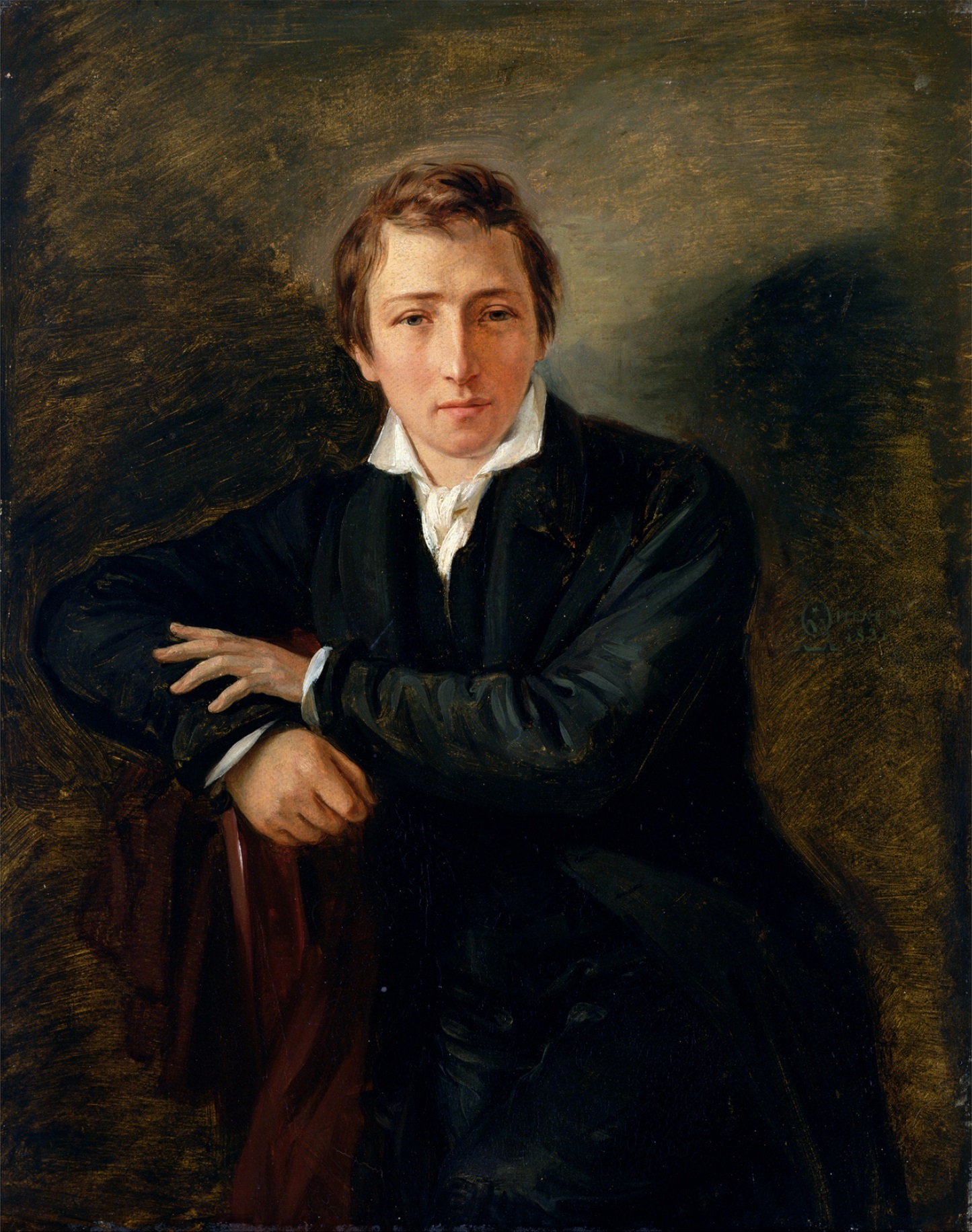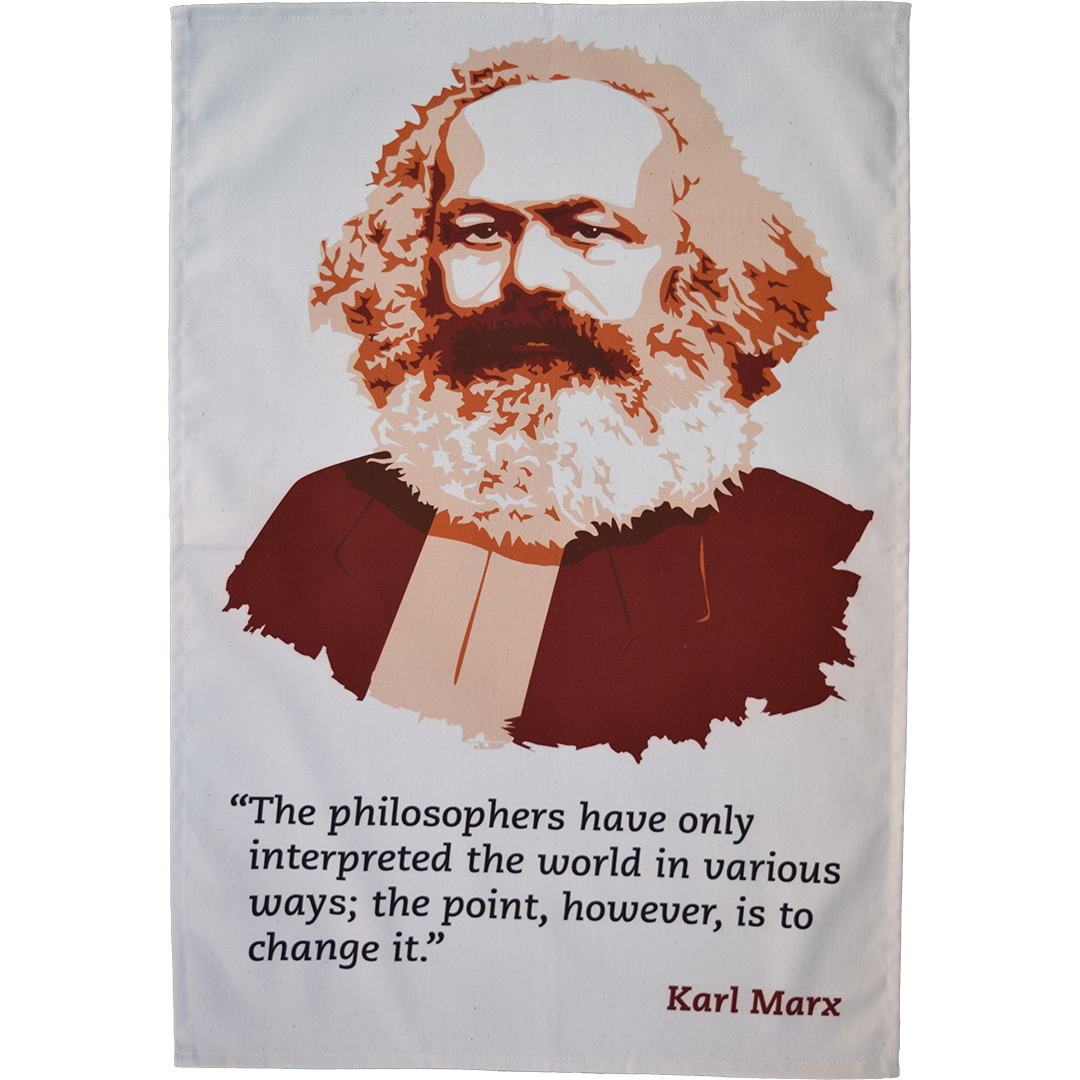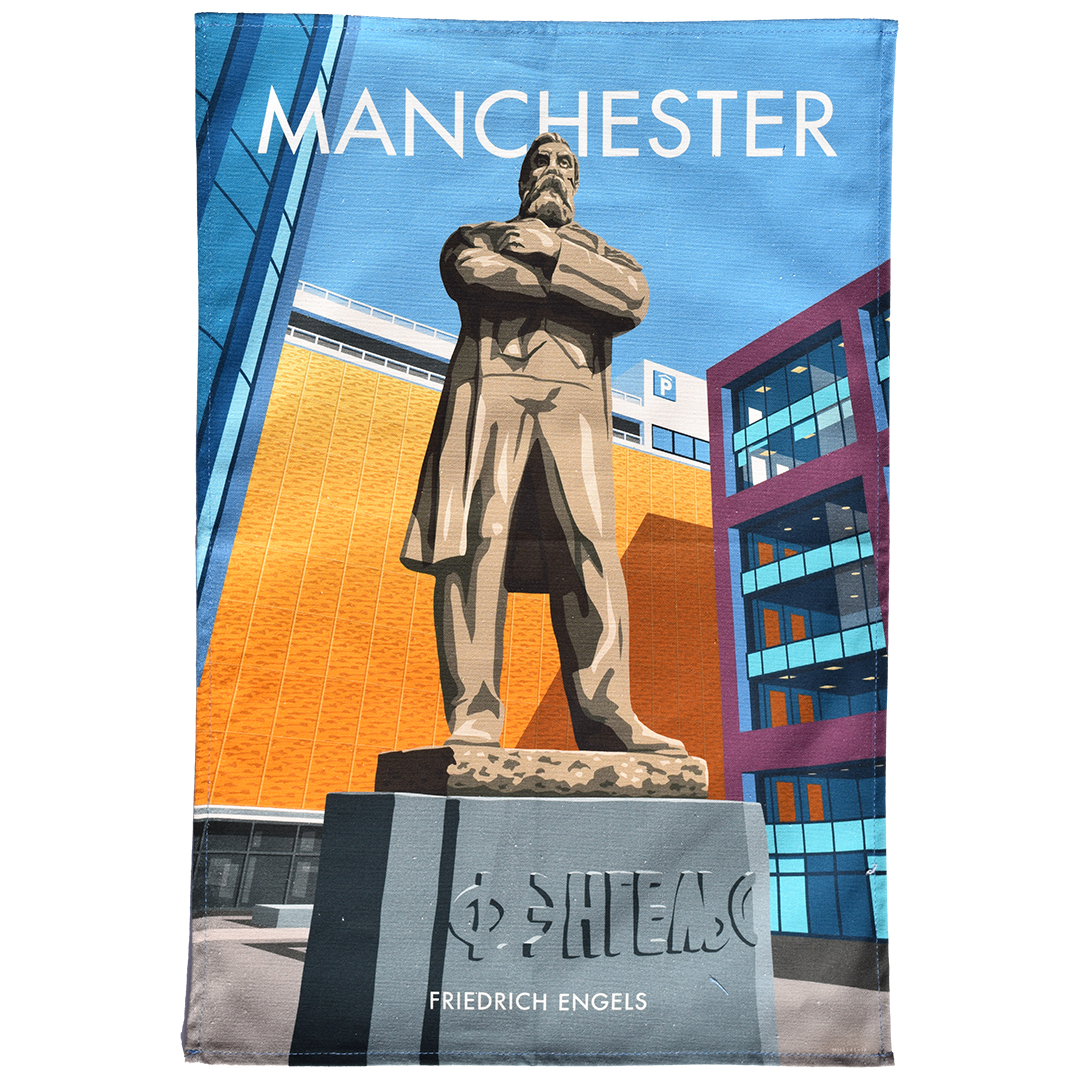Marx's Favourite Poet: The Life and Work of Heinrich Heine
Posted by Pete on 13th Dec 2021

A radical poet whose work was burned by the Nazis in Germany...
Karl Marx spent his life interpreting the cold facts of political economy, but he still managed to find time for poems.
Poetry, he believed, could make vivid the struggle of the masses. And his favourite poet – by far – was Heinrich Heine.
Born today in 1797, Heinrich Heine was Marx’s cousin, with both men hailing from the Rhineland in Germany.
But whilst Marx went on to become Germany’s most famous revolutionary, Heine became its most famous poet.
Heine was a third cousin once removed of philosopher Karl Marx, though they didn't meet until they were both adults.
Click to view our Karl Marx tea towel
The son of Jewish parents in Dusseldorf, Heine was forced to convert to Lutheranism in 1825 amid resurgent anti-Semitism in the Kingdom of Prussia.
For much of Heine’s childhood, Dusseldorf had been under the control of Napoleonic France. In the tradition of the French Revolution, the administration introduced full civil rights for Jews in the city.
But then, in 1815, France was driven out and Prussia put in charge. What progress had been made in terms of religious toleration was all undone.
The experience of these two different regimes made Heinrich Heine a lifelong Francophile – and a lifelong critic of the reactionary kings of Germany.

A portrait of Heine by Moritz Daniel Oppenheim
From 1819, his family sent him to university in Bonn to study law, which he hated.
But the universities were an escape from the reactionary politics which dominated Germany in these postwar years. Their progressive atmosphere let Heine develop not only as a poet, but also as a radical.
Almost as soon as he arrived at the University of Bonn, he was taking part in protests against the Carlsbad Decrees – repressive censorship laws imposed on Germany by the arch reactionary, Klemens von Metternich.
In 1826, Heine began collaborating with the Hamburg publisher, Julius Campe. A radical liberal, Campe was an expert at getting around Metternich’s censorship laws. He would publish poetry in absurdly large volumes, because any text over 320 pages was exempt from the censor.
Inspired by the July Revolution in Paris, Heine then moved to his beloved France in 1831.
Working as French correspondent for the
Allgemeine Zeitung, he continued to write poetry for a German audience. He came to be grouped with the ‘Young Germans’ – a group of radical poets and authors. On Metternich’s personal insistence, the publication of Heine’s work was banned in Germany in 1835.
Then came the 1840s.
It was in 1848, the year of revolutions, that Marx and Engels published their immortal Communist Manifesto.
Click to view our Friedrich Engels tea towel
Politics in Europe become increasingly radical through the ’40s as things bubbled up towards the Revolutions of 1848.
It was also during this decade that Heine finally met his cousin, Karl Marx.
Marx was driven from Prussia in 1843 when his newspaper was suppressed by the government. He moved straight to Paris, becoming good friends with Heine, a fellow exile.
It was in this context, personal and political, that Heine’s poetry became more radical than ever.
He wrote one of his most important works in 1844:
Die schlesischen Weber (The Silesian Weavers).
Inspired by an uprising of weavers in Peterswaldau, the poem was a tribute to their struggle. Heine has them weave a ‘three-fold curse’ into the burial shroud of the old, reactionary Germany. Its targets? The Church, the Kaiser, and conservative nationalism.
Heine never became a full-fledged communist – he found the philosophy too materialistic. But he very much shared Marx’s sympathy for the working class and hatred of the bourgeoisie.
Just as Germany at last geared up for the liberal revolution he’d been waiting for, Heine began to die.
He was bedbound with lead poisoning when German radicals briefly (and unsuccessfully) rose up in 1848.
Eight years later, in 1856, he died.
The German Right never got over Heine. Almost a century after his death, the Nazis burned his work in Berlin, trying to erase the tradition of Jewish radicalism in Germany.
But they failed. Heine is still remembered as one of the country’s greatest poets.
Scourge of reactionary politics in the 19th century, enemy of fascism in the 20th, Heinrich Heine is still a source of radical inspiration in the 21st.


